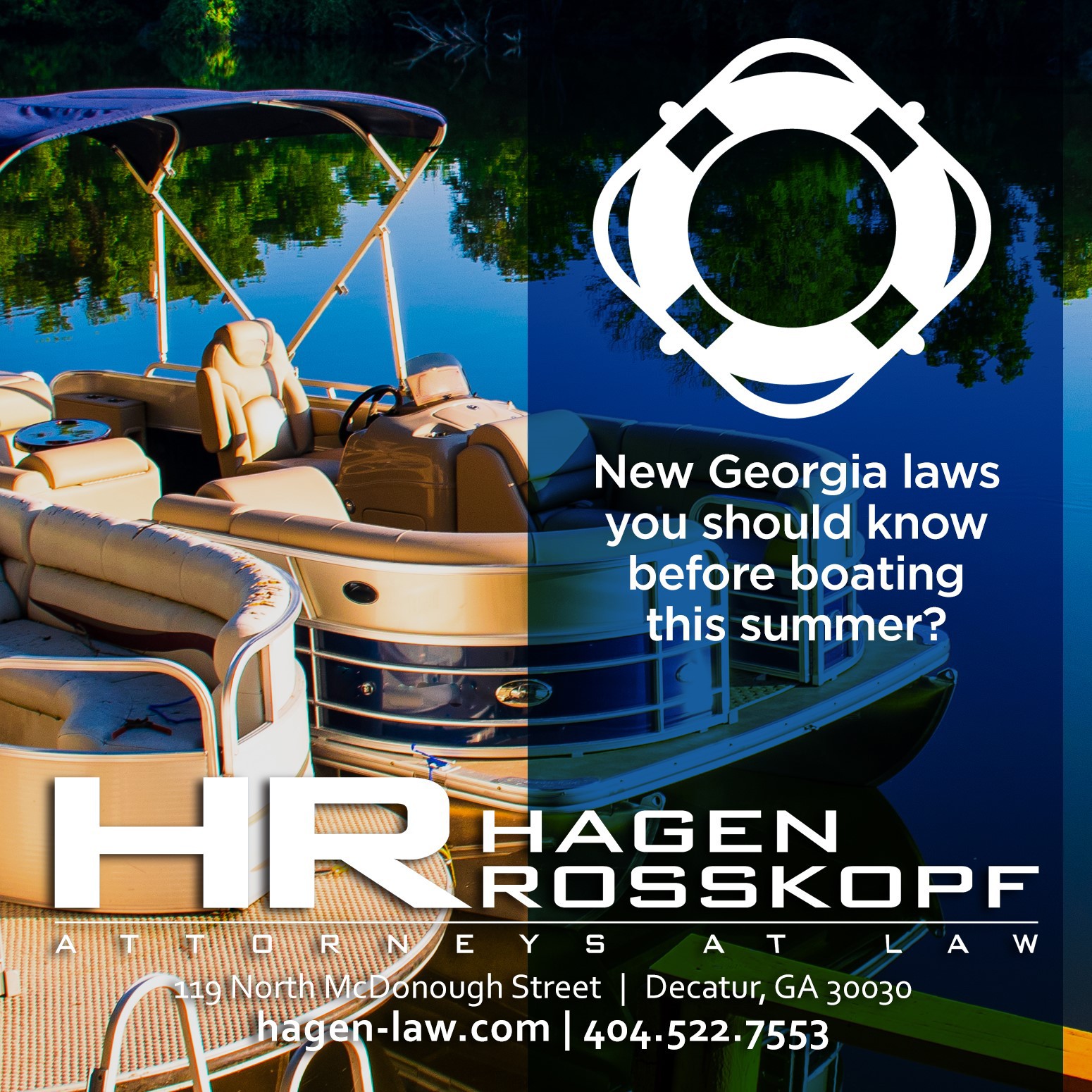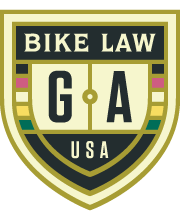New Wakeboarding And Wakesurfing Law In Georgia
Summer days on Georgia's lakes should be about making memories with family and friends - not emergency room visits. Whether you're planning your first wakeboarding adventure or you're a seasoned rider, a new Georgia law is designed to keep everyone safer on the water.
If you or someone you care about has been injured in a boating accident, you know how quickly a perfect day can turn into a nightmare. The good news? Georgia has taken steps to prevent these accidents. Here's what every family should know about the new wakeboarding and wakesurfing safety requirements.

What is the new boating law in Georgia?
Under House Bill 124, the new Georgia wakeboarding law, users must wear life vests while being towed.
Governor Brian Kemp signed new legislation for towed watersports earlier this year, responding to the boating industry's call for enhanced safety requirements. This isn't just bureaucratic red tape - this law exists because people have been seriously hurt in preventable accidents.
- Operating the vessel that is towing must have a designated spotter trained, any adult, dock, pier, jetty, or bridge structures or other watercraft
- Equipment or any shoreline adjacent to a full time or part time residence that anchors, moors, ramps, marina, restaurant, or other public use areas
- A person operating the vessel must always wear a U.S. Coast Guard-approved personal flotation device (PFD) while participating in these activities
- Wakesurfing and wakeboarding is now prohibited between the hours of sunset and sunrise
These aren't arbitrary rules. They're based on what we've learned from accidents that have already happened in our community.
There are two important points to note:
- HB124 does not change the existing law, which applies to all vessels.
- HB124 does not change the size on the Wake Zones, which means all vessels to slow to idle speed while traversing them.
Why is the new Georgia boating law important?
With so many lake residents, tourists and visitors enjoying Georgia lakes every summer, the No. 1 priority is everyone's safety. The measures required in the new law are designed to ensure the safety of not just the participants of watersports but also the safety of people on shore or close by. The new bill is also aimed to maintain a balance between recreation and public and private property.
The reality is sobering: Georgia consistently ranks among the top states for boating accidents every summer. The 2022 annual boating stats by the Georgia Department of Natural Resources reported 69 injuries from boating incidents, 25 boating fatalities and 306 incidents of damage (both physical and to the influences).
DNR officers reported that most of the warnings and tickets they issue are for boaters driving too fast in the no-wake zone. These aren't just minor violations - high speeds near other boats create dangerous wakes that can cause serious injuries.
Boating and water sports are meant to be safe and family fun recreational activities, but every year there are always a number of serious people whose negligent actions cause watercraft accidents and boating injuries.
2025 Update: What are the Boating Laws in Georgia?
Georgia Code Title 52 is also known as The Georgia Boat Safety Act, and it lays out the rules and regulations for boating in Georgia. Here are some of the most important boating laws that you should know:
- Anyone born on or after January 1, 1998 must complete a boating safety education course and carry a Georgia Boating License to legally operate a motorized vessel on Georgia waters
- Personal watercraft rules: There are specific restrictions about legally operating your boat or personal watercraft on public waters in Georgia. The restrictions are sailboats under 12 feet in length, canoes, kayaks, motorboats, rubber rafts, and boat operating exclusively on private ponds or lakes.
- Age restrictions matter: A person under 12 years of age may not operate a personal watercraft (PWC), and those under 16 cannot operate alone
- Alcohol and boating don't mix: It's illegal to operate a boat while under the influence of alcohol or drugs. Boating under the influence (BUI) carries similar consequences to a DUI. It is also against the law for the operator of the boat to allow anyone under the influence to operate the personal watercraft or boat spading, maintaining improper distance, disturbing navigation, overloading, and relying on the bow if the boat is not occupied with a rating.
- Personal watercraft (PWC) rules: It's illegal for boats or PWC to bow riders, ski boats, or any device of the type between sunset and sunrise.
What To Do You Are Injured in a Boating Accident?
No one expects their family outing to end in an accident. But if you or a loved one is injured because someone else didn't follow the safety rules, you have rights. Here's what you need to know in those critical first moments:
- Call 911: get help immediately.
- Get medical care, even if your injury did not require a visit to the emergency room. It is important to visit your doctor as soon as possible.
- Collect evidence: take photos and videos of the accident scene, the boats or watercraft involved and of any visible injuries.
- Talk to a Georgia boat accident lawyer: most personal injury lawyers, including the boating accident lawyers at Hagen Rosskopf, offer a free initial consultation. Always talk to a lawyer.
Why These Laws Matter to Families
We've represented families whose lives were forever changed by preventable boating accidents. A moment of inattention, a skipped safety step, or someone's poor judgment shouldn't cost your family a lifetime of medical bills and suffering.
The new wakeboarding and wakesurfing requirements aren't about limiting fun - they're about making sure everyone gets home safely. When boat operators follow these rules, accidents become much less likely. When they don't, and someone gets hurt, the law provides clear standards for holding negligent parties accountable.
Remember: the goal isn't perfect legal compliance. The goal is making sure every trip to the lake ends with everyone safely back home, with nothing but great memories and maybe a little sunburn.
If you have questions about your rights after a boating accident, or if you need help dealing with insurance companies after an injury, we offer free consultations. We're here when you need us.
